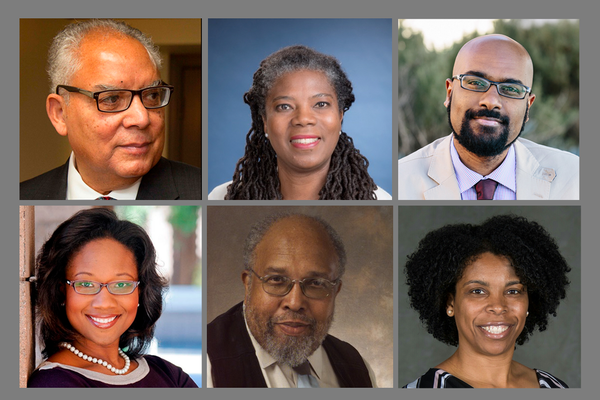This article was published in Scientific American’s former blog network and reflects the views of the author, not necessarily those of Scientific American
February is Black History Month in the United States, and as such it is an excellent time to learn about black history, yes, but also to listen to black people when they talk about their lives today. As this is a math blog, I am going to focus on black mathematicians, but I hope you’re taking advantage of other black history month observances, including this literary series from Very Smart Brothas and Chelsea Green’s Instagram series of black women composers and musicians.
Mathematically Gifted and Black is a good place to start learning about living black mathematicians. (To save you time, here’s a link to Nina Simone singing “Young, Gifted and Black,” which I get stuck in my head every time I see the name of that website.) Mathematically Gifted and Black was founded in 2017 and features a short Q&A with a black mathematician every day in February. For information on both historical and modern black mathematicians, see Scott Williams’ website Mathematicians of the African Diaspora. The American Mathematical Society blog inclusion/exclusion recently published a post about the impact that site has had on African American math students and mathematicians.
At the Joint Mathematics Meetings this past January, I had the pleasure of going to a talk called “A Dream Deferred: 50 Years of Blacks in Mathematics” by Edray Herber Goins, a mathematician at Pomona College.
On supporting science journalism
If you're enjoying this article, consider supporting our award-winning journalism by subscribing. By purchasing a subscription you are helping to ensure the future of impactful stories about the discoveries and ideas shaping our world today.
The thing I appreciated most about his talk was the way he balanced both history and math. The first half of the talk was an overview of the life stories of some of the first black people to receive Ph.D.s in math, and the second half focused on the research of Walter Talbot, the fourth African American to receive a Ph.D. in math. (To learn more about his work, check out Thomas Hales’ article “Walter Talbot’s thesis,” which formulates his ideas in modern mathematical terms.)
Too often, black and other racialized or minoritized people are asked to talk about their existence as members of that group rather than about the subject they are passionate about. Both are important, and I appreciated the chance to learn about Dr. Talbot’s math as well as his life from Dr. Goins.
In that spirit (and with only a sliver of shameless self-promotion), I want to point to the My Favorite Theorem podcast episodes Kevin Knudson and I have recorded with black mathematicians. Click through for audio, show notes, and links to transcripts. Emille Davie Lawrence told us why she loves the surface classification theorem. Mohamed Omar told us how to count symmetries using a clever lemma. Candice Price told us about DNA topology and mathematical “tangles.” John Urschel told us about graph sparsifiers. Chawne Kimber told us about the Hahn embedding theorem. Nira Chamberlain told us about the Lorenz system of equations. This year and last year, the Notices of the American Mathematical Society has devoted its February issue to Black History Month and the work of black mathematicians. Find this year's articles here through the end of February 2019 and last year's here (pdf).
Find more information on black mathematicians in this post from 2016. I also recommend this Q&A I did with Erica Walker, a math education professor who has studied the history of African American mathematicians and wrote the book Beyond Banneker: Black Mathematicians and the Paths to Excellence.
